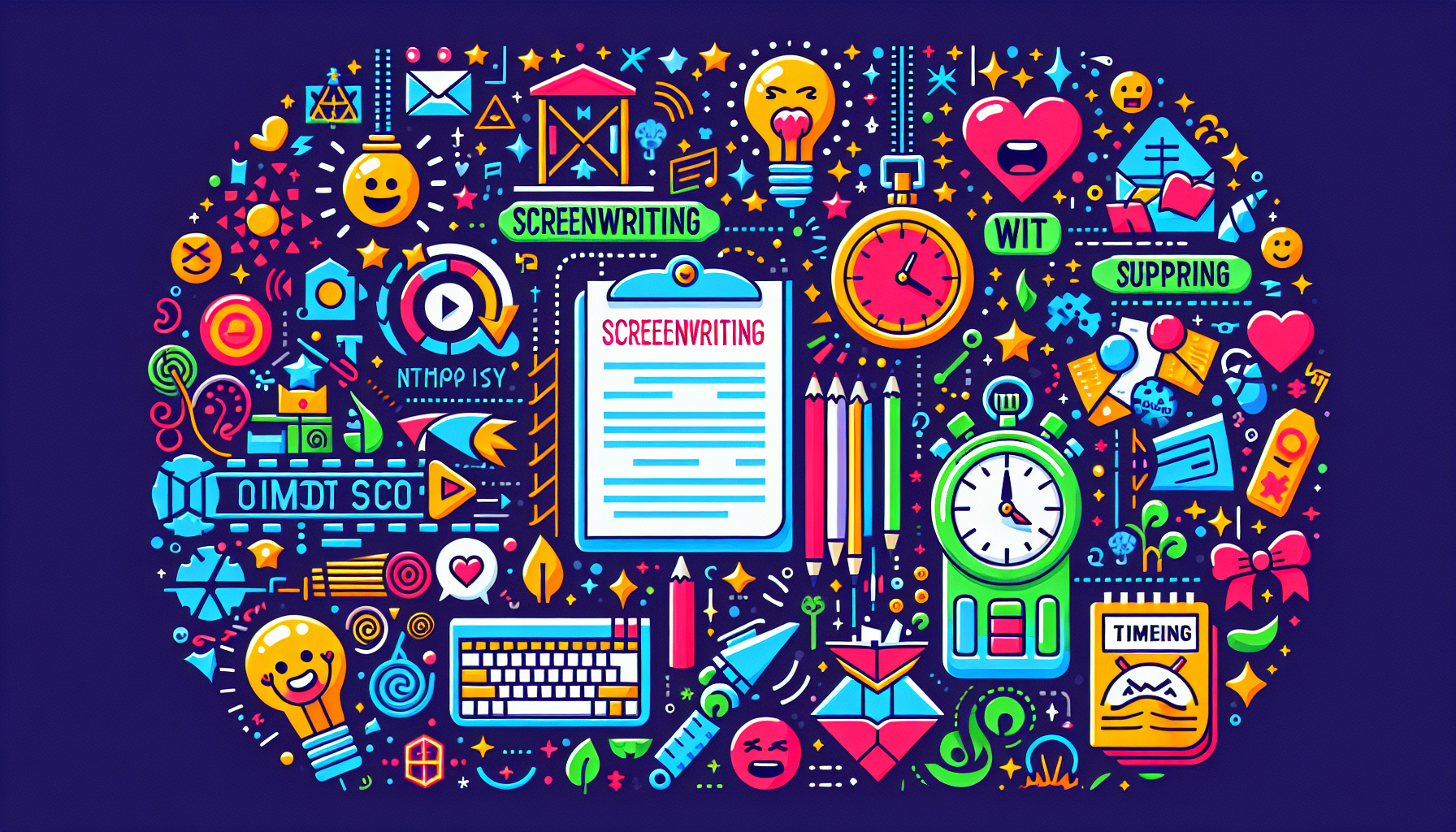
Mastering Comedy: Screenwriting Techniques & Timing Secrets
Comedy is a genre that transcends cultural and linguistic barriers, bringing laughter and joy to audiences around the globe. Yet, crafting a comedy that resonates with viewers, making them laugh at the right moments, requires a deep understanding of screenwriting techniques and the secrets of comedic timing. This article explores essential strategies for screenwriters aspiring to excel in the art of comedy, offering insights into creating humorous narratives that captivate and entertain.
Understanding the Basics of Comedy Writing
Comedy writing, at its core, is about subverting expectations. It’s the art of leading the audience in one direction and then surprising them with an unexpected turn. This principle applies to character development, dialogue, and plot twists. The key is to build a narrative that keeps the audience engaged, always anticipating the next laugh. A well-structured joke, situational humor, or character quirk can serve as the foundation of a comedic screenplay.
Characterization and Relatability
Characters are the heart of any story, and in comedy, their flaws, quirks, and interactions are primary sources of humor. Creating relatable characters that audiences can laugh with—and at—is crucial. Effective comedy often emerges from characters’ reactions to absurd situations or their unusual perspectives on everyday life. Building a diverse cast with distinct characteristics allows screenwriters to explore a variety of comedic situations and punchlines.
The Importance of Conflict and Stakes
Conflict and high stakes are not just for dramas; they’re also essential in comedy. The key difference is in the approach. In comedies, conflicts tend to stem from misunderstandings, miscommunications, or the characters’ ineptitudes, leading to a series of humorous events. Elevating the stakes in such scenarios heightens the potential for comedy by increasing the tension, which makes the resolution more satisfying—and hilarious. Finding the balance between seriousness and silliness is a skill that screenwriters must hone.
Timing and Pacing
Perhaps the most crucial aspect of comedy is timing. The saying timing is everything is especially true in humorous screenwriting. Timing affects how a joke lands or how a comedic situation unfolds. Pacing, too, plays a significant role; too fast, and the audience might miss the joke, too slow, and the humor may lose its impact. Screenwriters should pay close attention to the rhythm of their dialogue and scenes, ensuring that comedic moments have the right set-up and breathing room to maximally impact the audience.
Rewriting and Refining
Comedy writing is an iterative process. What may seem hilarious in the first draft could fall flat upon further reading. Rewriting and refining are crucial steps in the screenwriting process. This involves testing the comedic elements of the script—whether it’s the dialogue, the situation, or the character dynamics—to ensure they deliver the intended humor. Feedback from readings and workshops can be invaluable in this phase, providing fresh perspectives on what works and what needs improvement.
Studying Successful Comedies
One of the best ways to master comedy writing is by studying successful examples. Analyzing popular comedies, whether in film, television, or theater, can provide insights into effective comedic timing, character development, and narrative structures. Pay attention to how these works build up to their jokes, how they develop characters, and how they pace their stories. Taking notes on these elements can inspire and inform your comedic writing.
Mastering comedy screenwriting is a challenging but rewarding endeavor. It requires understanding the principles of humor, creating engaging and relatable characters, crafting compelling conflicts, and mastering timing and pacing. Through study, practice, and continual refinement, aspiring comedians can develop the skills needed to write stories that entertain, resonate, and, most importantly, make audiences laugh.






